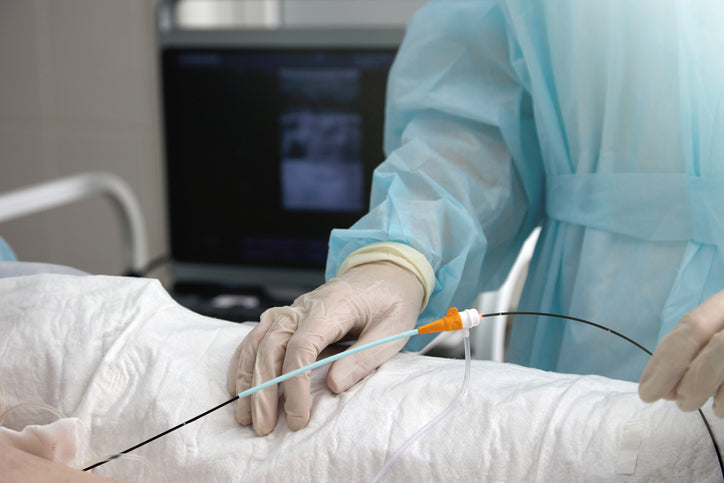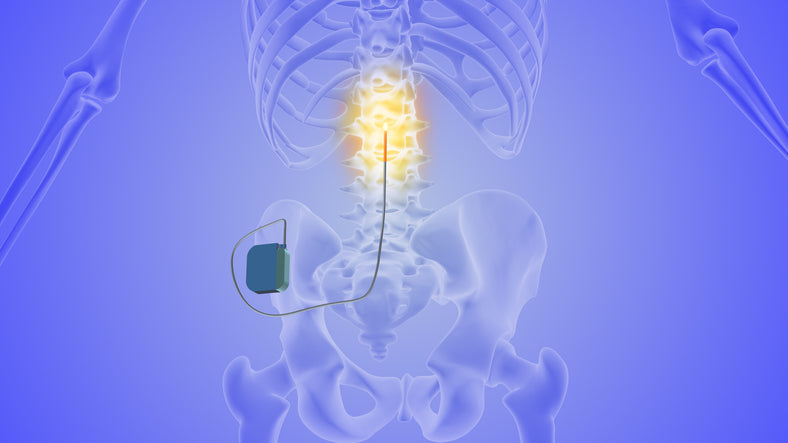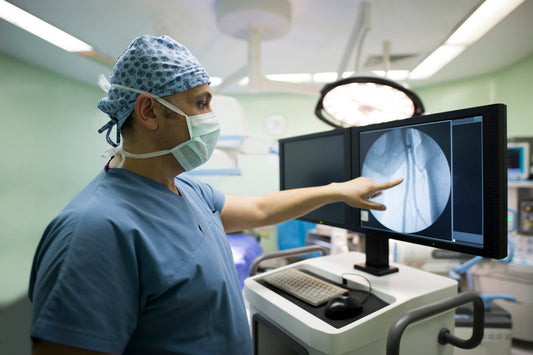INTERVENTIONAL PAIN SOLUTIONS
Interventional pain solutions refer to a range of medical procedures and techniques designed to manage and alleviate chronic pain. These interventions are typically performed by interventional pain management specialists—physicians who have specific training in pain medicine and use various minimally invasive procedures to target the source of pain. The goal is to improve the patient's quality of life and function by reducing or eliminating pain.

Viscosupplementation
Viscosupplementation is a medical procedure that involves injecting a thick, gel-like substance called hyaluronic acid (HA) into a joint. Hyaluronic acid is a natural component of synovial fluid, which lubricates and cushions the joints.
This procedure is commonly used to treat osteoarthritis, a degenerative joint disease characterized by the breakdown of cartilage in the joints.
Osteoarthritis can cause pain, stiffness, and reduced joint mobility.
Viscosupplementation is often employed in the knees, but it can also be used in other joints such as the hip or shoulder.
The injections are typically given in a series over several weeks, and the frequency and number of injections may vary depending on the specific product used and the severity of the condition. The goal is to provide relief from pain and improve joint function.

Genicular Artery Embolization
Is an innovative approach to alleviating persistent knee pain and often for the patient who has not found relief in other non-surgical methods. This treatment is often used to relieve knee pain from osteoarthritis and recurring inflammation.
With increased inflammation of the knee often begins growth of small blood vessels around the knee. With Genicular Artery Embolization these abnormal arteries are removed and the pain and discomfort is improved quickly.

Nerve Blocks
Epidural Steroid Injections or Nerve Blocks – Injection of an anesthetic, steroid, and/or anti-inflammatory into the pained area to reduce pain and improve movement. This procedure is typically performed in a physician’s office and can provide quick relief for many conditions including, lumbar herniation, sciatica, neuropathy and more. To read about the conditions this procedure can treat visit thisblog post.

Radiofrequency Ablation
Radiofrequency ablation (RFA) is a medical procedure used to treat certain types of chronic pain. It involves the use of electrical currents to generate heat and target specific nerves or tissues that are causing pain. RFA is often employed in pain management when other conservative treatments have been unsuccessful.
Common conditions treated with radiofrequency ablation include facet joint pain, sacroiliac joint pain, and certain types of nerve pain such as lumbar or cervical medial branch neurotomy.

Spinal Cord Stimulation
Spinal cord stimulation (SCS) is a medical procedure used to manage chronic pain, especially when other treatments have been ineffective. It involves the use of a small implanted device that delivers electrical impulses to the spinal cord, disrupting the perception of pain signals before they reach the brain.
Spinal cord stimulation is commonly used to treat various chronic pain conditions, including failed back surgery syndrome, complex regional pain syndrome (CRPS), neuropathic pain, and certain types of leg and arm pain. It is particularly considered for individuals who have not responded well to other conventional treatments.
While spinal cord stimulation can be effective in reducing pain for many patients, it may not eliminate it entirely. The goal is often to provide significant pain relief and improve overall quality of life.
Blog posts
View all-

The Rise of Shockwave Therapy: A Game-Changer i...
In recent years, shockwave therapy has gained immense popularity as a non-invasive treatment for various musculoskeletal conditions. From athletes recovering from injuries to individuals suffering from chronic pain, this innovative...
The Rise of Shockwave Therapy: A Game-Changer i...
In recent years, shockwave therapy has gained immense popularity as a non-invasive treatment for various musculoskeletal conditions. From athletes recovering from injuries to individuals suffering from chronic pain, this innovative...
-

Shockwave Therapy for Pain Management: A Game-C...
Is Shockwave Therapy Right for You? If you’re dealing with chronic pain, sports injuries, or joint discomfort, shockwave therapy offers a safe, effective, and non-invasive solution. By stimulating healing, reducing...
Shockwave Therapy for Pain Management: A Game-C...
Is Shockwave Therapy Right for You? If you’re dealing with chronic pain, sports injuries, or joint discomfort, shockwave therapy offers a safe, effective, and non-invasive solution. By stimulating healing, reducing...
-

Unlocking the Value: Why Upgrading from a 10+ Y...
In the rapidly evolving field of medical technology, staying up-to-date is crucial for delivering the best patient care and maintaining a competitive edge. If you’re still using a 20-year-old C-Arm,...
Unlocking the Value: Why Upgrading from a 10+ Y...
In the rapidly evolving field of medical technology, staying up-to-date is crucial for delivering the best patient care and maintaining a competitive edge. If you’re still using a 20-year-old C-Arm,...




